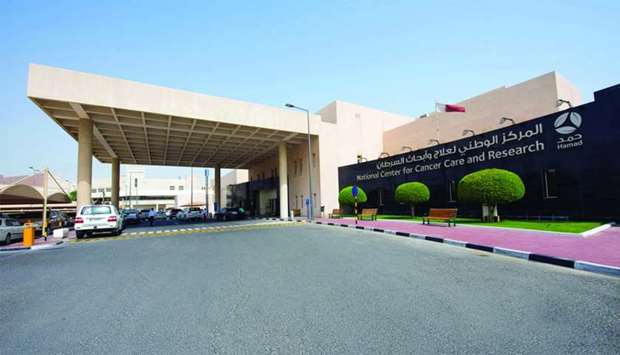In support of Hamad Medical Corporation’s (HMC) commitment to providing women in Qatar with premium breast cancer care, a new Breast Care Clinic was officially opened at the National Centre for Cancer Care and Research (NCCCR) earlier this summer.
The new clinic provides patients with a multidisciplinary approach to breast cancer care, known as triple assessment. Since opening, more than 600 women have visited the Breast Care Clinic and accessed the specialised service.
The triple assessment test is a special evaluation that is currently the international gold standard for thorough and accurate breast cancer diagnoses. It involves a series of diagnostic tests, including a clinical breast examination, breast imaging, and a core biopsy if a lump is found.
“Triple assessment is a one-stop shop which better serves a patient’s needs as it reduces the time required for diagnosis and speeds up the treatment process. It is a very useful diagnostic tool to evaluate patients with breast lumps and to detect breast cancers,” said Dr Amal al-Obaidli, deputy chairperson, Clinical Imaging Services NCCCR.
The new clinic, which was officially inaugurated by HE Dr Hanan Mohamed al-Kuwari, the Minister of Public Health, is playing an important role in reducing the incidence of breast cancer in Qatar through offering a quick, high-quality service aimed at detecting early breast disease and providing a personalised plan of care for patients.
Breast cancer is the most common cancer among women in Qatar. It is the most common cancer in women worldwide and the second most common cancer overall. Health officials predict that one in eight women will develop breast cancer in their lifetime. However, if detected early, treatment can save lives.
The Breast Care Clinic, which receives referrals from the National Screening Programme and the Primary Health Care Corporation, provides diagnoses and arranges treatment of breast cancer for women in one convenient location.
Dr al-Obaidli explained, “The triple assessment test is used to accurately diagnose all tangible breast lumps. Currently, we offer a combination of three tests, including clinical examination, radiological imaging such as mammography and ultrasonography, and biopsies. However, plans are underway to expand our current services and to provide asymptomatic and high-risk assessments,” she added.
“Cancer in general, and breast cancer in particular is a devastating disease and new cases of invasive breast cancer are increasing in frequency across the world. The treatment journey is exhausting; patient must go through a long and complicated process. That’s why we are continuously improving our services; aiming to provide cancer patients with the support needed to make their treatment journey as comfortable as possible,” said Dr al-Obaidli.

